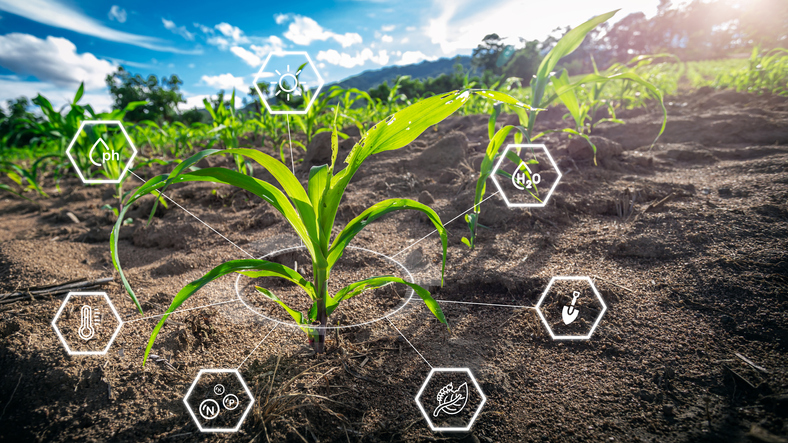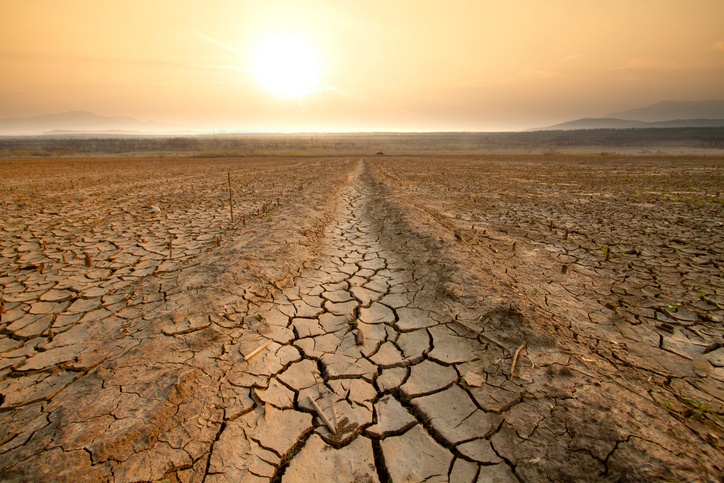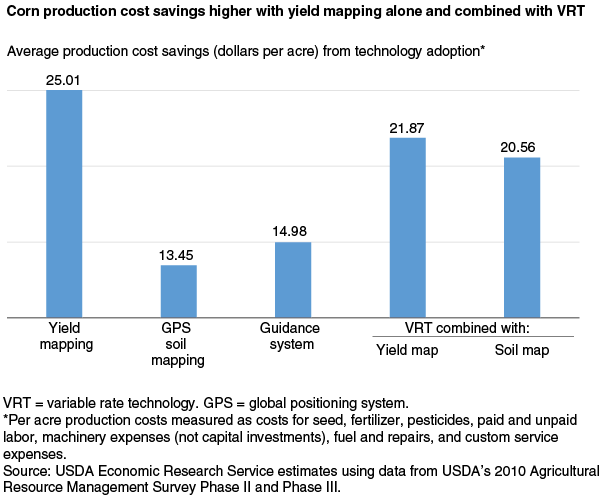How Is Smart Farming Technology Empowering Sustainable Agriculture?
Understanding Smart Farming
Smart farming, often referred to as precision agriculture or digital agriculture, is an integrated approach to farming that utilizes technology, data, and real-time information to make informed decisions about crop and livestock management. It involves the use of a wide range of technologies, including:

- IoT Sensors are deployed across fields and livestock facilities to collect data on soil moisture, temperature, humidity, crop health, livestock behavior, and more. This data is transmitted in real-time to a central system for analysis.
- Advanced data analytics and artificial intelligence (AI) algorithms process the data generated by sensors, weather forecasts, historical data, and other sources to provide actionable insights to farmers.
- Global Positioning System (GPS) and Geographic Information System (GIS) technologies enable precise mapping of fields, optimizing planting and harvesting patterns, and resource allocation.
- Unmanned aerial vehicles (UAVs) and satellites capture high-resolution images of fields, helping farmers monitor crop health, detect pests and diseases, and assess the need for irrigation or fertilization.
- Smart farming systems employ automation and robotics to perform tasks such as planting, weeding, harvesting, and livestock management more efficiently and with reduced labor.

Challenges Facing Conventional Farming Methods
Today, there is a myriad of challenges facing traditional farming practices, including climate change-induced weather unpredictability, resource scarcity, increasing global demand for food, and the need to minimize environmental impact. However, smart farming technology offers a promising solution. By harnessing the power of data analytics, IoT devices, and automation, it enables farmers and gardeners to make informed decisions about crop and livestock management, optimize resource usage, and adapt to changing environmental conditions. This technology not only enhances productivity and crop yields but also promotes sustainable farming practices by minimizing resource waste, reducing chemical usage, and preserving soil health. In a rapidly evolving agricultural landscape, smart farming technology serves as a vital tool, helping farmers and gardeners overcome the complex challenges they face and ensuring a more sustainable and resilient food production system for the future.
Sustainable Benefits of Precision Agriculture
Precision agriculture technologies, including yield mapping, soil mapping, auto-guidance machinery steering, and variable rate technologies (VRT), are gaining popularity among farmers for their potential cost-saving benefits and enhanced farm-production management. According to a 2016 Agricultural Resource Management Survey by the United States Department of Agriculture (USDA), when these technologies are used independently or in combination, farmers can save up to a significant $25 per acre (Figure 1).

Source: USDA
In addition to significant cost-savings, smart farming technology provides the following sustainable benefits:
- Smart farming helps optimize resource use. By analyzing data on soil conditions, weather patterns, and crop health, farmers can precisely apply water, fertilizers, and pesticides, reducing waste and minimizing environmental impact.
- Data-driven insights enable farmers to adopt integrated pest management strategies, reducing the need for chemical pesticides and promoting natural pest control methods.
- With the help of technology, farmers can maximize crop yields by identifying the best planting times, selecting suitable crop varieties, and monitoring growth conditions closely.
- Smart irrigation systems use real-time data to ensure that crops receive the right amount of water, reducing water wastage and minimizing the stress on local water resources.
- Continuous monitoring of soil conditions allows farmers to maintain and improve soil health over time, preventing erosion and degradation.
- By optimizing machinery usage and field operations, smart farming reduces energy consumption and, consequently, greenhouse gas emissions.
- Access to a wealth of data empowers farmers to make informed decisions, adapt to changing conditions, and respond to challenges more effectively.
- Sustainable practices driven by smart farming can lead to increased profits for farmers, making it a financially attractive option.
Addressing the Need for Precision Agriculture Adoption
In the face of mounting global challenges, the adoption of smart farming methods is not just an option; it’s a necessity. While there are hurdles to overcome, including initial investment costs, connectivity issues in rural areas, and data privacy concerns, these challenges are surmountable when viewed through the lens of a more sustainable future. To truly drive the transformation of agriculture towards sustainability, it’s imperative for all stakeholders – farmers, technology developers, governments, and academia – to unite in a collaborative effort. Ongoing research, innovation, and investment are the keys to refining and expanding smart farming technologies. Embracing these innovations is not merely a means to meet the needs of the present; it is the path to secure a prosperous and sustainable future for generations to come. The time for smart farming is now, and its adoption is essential to ensure a resilient and thriving agricultural landscape.
Looking to develop a smart farming solution? Our knowledgeable team of Applications Engineers are experts in IoT, industrial IoT (IIoT), and wireless technology and are uniquely positioned to guide you to your optimal smart farming device design. Consultation is free and available throughout your design cycle. Contact Symmetry Electronics today!










